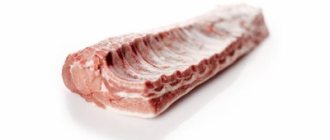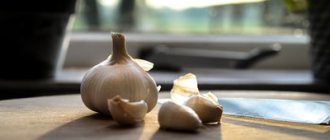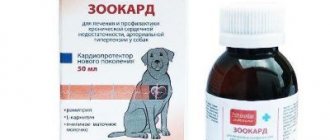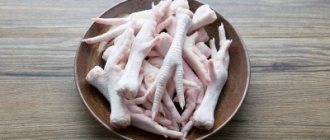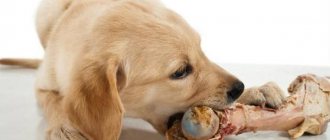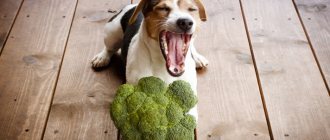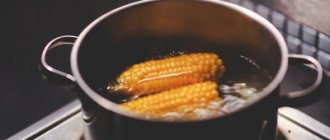Is it worth diversifying a dog's diet with different foods that their owners eat? Disputes about this do not subside: some believe that this animal is a predator and should not eat anything other than meat.
Others argue that you can’t do without plant proteins, fiber and carbohydrates. The pets themselves are often in a hurry to feast on everything that has not been cleared from the table. Is it worth giving dogs seeds, and what benefits it can bring, we’ll look into this article.
Pumpkin
Pumpkin itself is very healthy for dogs; along with carrots, it is added to food as vegetables. But not everyone knows that your pet can eat pumpkin seeds, albeit a little at a time. They will be extremely beneficial:
- serve as a tasty treat. Most dogs will eat them happily, and they are a great way to reward your pet for being obedient or following commands correctly;
- contain 12 essential amino acids, proteins and fats, which are important for the growth and structure of muscle tissue. To get the daily requirement, it will be enough to eat from 30 to 50 grams. (depends on the weight of the dog);
- a valuable source of vitamins PP, which are responsible for the healthy shine of the coat and the development of all redox reactions in the body necessary to obtain energy from fats and sugars, that is, in fact, for the absorption of other food. This vitamin is rarely found in other products and in smaller quantities;
- help cleanse the stomach - relax the intestines, making stools more liquid and frequent. Improves the functioning of the gastrointestinal tract;
- help improve immunity (will be especially valuable for small breeds);
- reduce cholesterol levels;
- make bone tissue stronger.
Pumpkin seeds also have an anthelmintic effect, which we will discuss in more detail below.
Content
1. Are there any benefits to sunflower seeds? 2. Should you give your dog pumpkin seeds 3. Can they harm you 4. How much and how to give?
Even inexperienced dog breeders know that a pet’s diet should be balanced, and it should contain both protein foods of animal origin and plant products - cereals, vegetables and fruits. But many people have a question: is it possible to give seeds to dogs? It’s hard to resist when the dog looks with envy into the face of its owner as he husks the seeds.
Sunflower
Sunflower seeds are another type of healthy treat that is loved by all dogs. It is curious that even large breeds, such as the Alabai or the Rottweiler, readily eat them, for which they are literally “one tooth at a time.”
This is a treat:
- rich in vitamins - A, D, E, B, micro and macroelements: calcium, iron, zinc, magnesium, manganese, selenium. They have a beneficial effect on the dog’s skeletal system, strengthening it and improving mineralization. They also normalize the production of hormones, red blood cells and enzymes. Separately, it is worth mentioning the presence of vitamin E - it works as a powerful antioxidant against free radicals;
- increases the dog’s activity, so it can serve as a reward during training;
- supports the health of the cardiovascular system, strengthens blood vessels and arteries;
- reduces the level of cholesterol absorption due to the content of phytosterols.
In addition, most dog owners testify that eating the seeds calms their pets. It is quite possible that animals like not only the taste of the treat, but also the process of chewing it, as well as the crunching sound.
Weekly menu for a toy (natural food)
If you wish, you can create any menu for the toy for a week. An example option is described below:
| Day of the week | Morning | Evening |
| Monday | Boiled rice with finely chopped meat and herbs | Cottage cheese, flaxseed oil, yolk |
| Tuesday | Oatmeal with herbs and rabbit meat | Sea fish, fermented baked milk or kefir |
| Wednesday | Beef heart, finely chopped | Sea fish, carrot, apple |
| Thursday | Rice porridge with zucchini, finely chopped boiled veal and herbs | Fish, cabbage, croutons |
| Friday | Oatmeal with beef liver, stewed pumpkin and vegetable oil | Low-fat cottage cheese, pear |
| Saturday | Buckwheat with finely chopped chicken and herbs, peach | Boiled fish, carrots |
| Sunday | Boiled rice with beef, zucchini and herbs | Curdled milk, banana, pear |
Any vegetables can be given, except those containing starch.
Is it harmful to give?
Everything is good in moderation - in relation to seeds, this maxim is more accurate than ever, since it is very easy to overfeed an animal with them.
Pumpkins in large quantities can cause digestive problems. If such an incident occurs once, the result will be an upset stomach (it is quite possible that the dog will defecate undigested seeds until they are all expelled).
If you overfeed pumpkin seeds on a regular basis, an ulcer may develop.
Sunflowers are also difficult to digest in large quantities.
In addition, they pose a risk of obesity: they are a very high-calorie product. For dogs, obesity, especially internal obesity, when fat accumulates on the internal organs, is extremely dangerous and is fraught with a number of health problems.
Another danger of feeding dogs seeds concerns environmental issues. The fact is that this product extremely easily accumulates harmful substances - nitrates and pure poisons.
In addition, sunflower fields are usually planted near highways, where the percentage of air pollution is much higher. Therefore, it is extremely important to wash and peel purchased seeds, and the best option would be to offer the dog a product grown independently or purchased in the private sector.
Is it possible to harm
In limited quantities, neither sunflower nor pumpkin seeds will cause harm. Animals should not be fed unpeeled seeds; they must be peeled. And you should dose the norm - the seeds are very high in calories. The increased caloric content of the product can lead to obesity and problems with the digestive system in the dog.
Excessive consumption of seeds can provoke an outflow of bile in the body, puts a strong burden on the liver and gallbladder, and causes colitis. The seeds take a long time to digest and can cause discomfort in the stomach and intestines.
Pumpkin seeds in large quantities can also harm your pet’s body, even causing the development of stomach and intestinal ulcers. Thick peels can damage tooth enamel and get stuck in teeth, causing premature decay.
Salted and fried seeds should not be given to pets. The first is due to the fact that salt is poison for dogs. Its presence in food can cause an imbalance in the water-salt balance in the body, increase blood pressure, damage the gastric mucosa and provoke cardiovascular diseases. Symptoms of complications may include:
- vomit;
- diarrhea;
- excessive thirst;
- frequent urination;
- convulsions.
This condition requires medical intervention, so a dog that has eaten salted seeds should be shown to a veterinarian as soon as possible.
During heat treatment, seeds lose their beneficial properties, so there is no point in feeding your dog “empty” food. And overcooked ones have a negative effect on the digestive system and put a strain on the liver.
Do they help against worms?
Pumpkin seeds are considered an effective folk remedy for worms; it can also be used for dogs. Pumpkin seeds contain an acid called cucurbitin - it is poisonous to worms and other parasites, but safe for humans and animals.
In order for pumpkin seeds to have an anthelmintic effect, you need to follow a number of rules:
- give them to your pet on an empty stomach;
- give in a course of 70 g per day (the amount can be reduced to 20-30 g if the dog is small).
It’s worth knowing: there is an effective recipe against worms: pumpkin seeds, dry wormwood and tansy. This powder can be mixed into the animal’s food, for example, porridge or finely chopped meat. The mixture will not only rid the dog of worms, but will also improve the condition of the coat - it will become shiny and smooth.
Feeding the “mini” toy terrier
For miniature toys, special food has been developed that takes into account the mobility of the dogs. They replenish the energy spent in games and do not cause excess weight. For example, Royal Canin offers Mini Adult food for miniature dogs. It has everything to keep your pet's skin healthy and your pet's fur smooth and shiny. The size of the granules takes into account small jaws and teeth. The taste will suit the most capricious pet.
Toys can be picky about food. During their life they can try a variety of products.
Remember! You cannot mix dry and prepared food in one meal.
When feeding finished products, adhere to the following rules:
- do not soak the granules with different liquids (broth, water, milk);
- feed is given as much as recommended on the package;
- the product brand is changed gradually;
- It is useful to water vegetables with virgin oils (milk thistle, wheat germ, sesame, corn);
- When choosing granules, the age of the dog is taken into account; products that do not meet this criterion are not provided.
For puppies
The seeds can be given to both adult dogs and puppies (of course, at the age when the baby begins to eat other foods besides milk). It is correct to accustom the animal to different delicacies from childhood, otherwise the pet may not appreciate the gastronomic variety.
At the same time, the serving size should be 2 times smaller than that of an adult, otherwise stomach upset cannot be avoided. It is also important to ensure that the puppy does not choke on small grains.
Contraindications for use
As for contraindications, here are the features and prohibitions:
- presence of predisposition to allergies;
- periodic disturbances in the digestive system - vomiting, diarrhea or constipation sometimes bother the pet;
- the presence of pathologies of internal organs.
Before starting to introduce seeds into the diet, it is better for the pet owner to consult a veterinarian and show him his pet.
Sunflower or pumpkin seeds can be given to animals, but only in compliance with the permitted dosage. It is better to avoid feeding cats, dogs and parrots seeds if there are concerns for their health.
If eaten with the husk
How can you tell what you've stolen?
It is possible that a pet will eat the seeds without waiting for them to be cleaned. In this case, there is no need to panic: if such a feast is not repeated regularly, it will not harm the dog.
There will be no signs of illness: the animal simply will not eat as many seeds as it takes to get sick. It is also impossible to get poisoned by seeds, both pumpkin and sunflower.
It will be possible to understand that the dog has eaten seeds with skins after he defecates: the product will come out undigested. If there were a lot of them, the animal will begin to eat only seeds until all of them are eliminated from the body. It is also possible that the stool may turn black.
What to do?
In this case, no special help is required: the product will be eliminated from the body on its own. You should not skip feedings: they will only promote hatching.
If you have eaten a lot of seeds, you should give Vaseline oil: it coats the intestinal walls and helps relieve pain. Rough foods high in fiber (such as grated carrots and apples) are also helpful.
How to wean them off if she loves them?
It is difficult to wean a dog from eating seeds - this is a favorite treat for many animals. You can prevent incidents of theft and ingestion of too many seeds by only removing the product from the dog’s reach and dispensing it “legally” in small doses.
It is also worth offering the animal other treats: special dog biscuits, hard unsalted cheese, apples. This is more useful and safe than a large dose of seeds, and will allow the dog to “switch” and stop begging for goodies.
What's not allowed?
In general, all representatives of the Toy Terrier breed are prohibited from eating any food from the master’s table.
Since food prepared for humans contains an excessive amount of salt and sugar, which is extremely harmful for the pet.
The list of products, the consumption of which can lead to serious consequences for the toy terrier’s body, is as follows::
- any smoked meats, sausages, frankfurters;
- grilled meat;
- crackers, chips, baked goods;
- chocolate, sweets;
- pasta;
- fatty meat, incl. pork;
- raw offal and raw fish;
- potatoes and legumes;
- raw eggs;
- cream, sour cream;
- spices.
Useful video
Watch this video about the benefits of chewing bones for dogs:
One of a dog's favorite pastimes is gnawing on something. Its owner must carefully ensure that the pet’s teeth do not come across unsuitable things, including those harmful to health. And in order for the animal to satisfy its needs, it should be given treats specially designed for this purpose. The optimal choice is a product that will care for the dog’s teeth and oral cavity.
The domestic dog traces its ancestry to the wolf, and over tens of thousands of years near humans, it has not lost the characteristic features of a predator, in particular, powerful jaws and 42 teeth, which are designed for gnawing and tearing food, and not for chewing it. Our pets have long since gotten rid of the need to hunt to get food and switched to industrially produced food. However, they continue to feel the urge to use their teeth for their intended purpose. And if an animal gets at its disposal something that can be chewed, it cannot hide its pleasure.
Therefore, the pet owner should make sure that the dog has access to suitable items.
[custom_ads_shortcode3]
From tendons
This type of bone is most popular among owners of four-legged friends. Most often, bones for dogs made from tendons are purchased in order to brighten up leisure time when the pet is alone. A product made from tendons and connective tissue copes well with the problem of cleaning teeth from large food particles.
The advantage of such seeds is their natural composition. They make a tasty treat from veins and rawhide . As a rule, tendon bones do not contain dyes or preservatives and are excellent for allergic animals. Unlike natural bones, the artificial vein product is safe for the health of dogs.
[custom_ads_shortcode1]
Feed comparison
Currently, you can buy a variety of foods for your Toy Terrier. All products are divided into several groups with specific features:
- Premium class. Most toy owners choose this kind of food. They have a balanced composition and are quite affordable for any buyer. Almost all brands have similar products, so you can choose the right food. It is important to carefully read the composition of feeds of this class - some of them can be very good, while others remain at the level of the economy segment. Good products should contain a large amount of proteins. The most popular brands are Hills, Pro Plan, Royal Canin.
- Super premium class. These foods belong to the first class, often containing various poultry meat, eggs, rice, and first category by-products. The composition of the products is so balanced that there is no need to supplement the menu with various vitamin complexes. The food is well digestible, does not contain chemical components and does not provoke allergies. Special technologies are used in the production of food, thanks to which all nutrients are preserved. Popular brands are Monge, Brit Care, Trainer.
- Holistics. This is the highest quality food. There are statistics that dogs fed these products from childhood practically do not get sick. There are no chemicals in such food, and the ingredients are selected in such a way that the dog has enough of all the elements. Popular brands are “Acana”, “Canidae”, “Holistic Blend”.
Before choosing food, it is recommended to consult with a veterinarian and choose the most suitable option.
Dry food is divided into several groups, you need to choose the most suitable one
How to change the power plan
A change in diet can negatively affect the pet’s condition, but in some cases it cannot be avoided. For example, if your dog has an allergy, then it is necessary to change the diet as quickly as possible. It is permissible to change food once every three months. Before feeding your Mini Toy Terrier new food, you need to offer the animal several foods to choose from and observe its reaction.
Important! The diet is changed gradually, over approximately 7-10 days. The old diet is gradually replaced with a new one.
Under no circumstances should you switch your dog from natural food to dry food and vice versa, this can negatively affect the condition of the gastrointestinal tract.
Chewable
In the assortment of the pet store there is always a product for chewing by pets of a wide variety of sizes. Thus, bones for small dogs are small in size. When choosing an artificial substitute, the owner should be guided, first of all, by safety. Manufacturers who produce chewing bones for animals, as a rule, detail in the instructions for dogs what breeds and what weight a particular product is intended for.
To help in choosing a chewing bone for your pet, advice from the seller or consultation with a veterinarian will help. Puppy owners should be aware that most chew bones are not suitable for babies under 4 months of age.
[custom_ads_shortcode2]
Features of feeding during pregnancy and after childbirth
During pregnancy and after birth, the dog requires more nutrients. The mother needs to be fed up to 6 times a day. In this case, the dog is given calcium supplements and a little salt is added to the food.
To replenish the necessary balance of fats, it is recommended to give your dog 10% cream. The pet needs clean water; you can give it rice water. After the puppies are given away, the bitch is given three meals a day.
Cottage cheese is very healthy for kids
Industrial bones
Dog owners still disagree on whether they should give their pets artificial bones. On the one hand, they have a number of advantages:
- Chewing bones is useful for preventing tartar and plaque.
- Busy with a chew toy, the dog will not damage your furniture and objects in the house. He will have the need to chew in any case, but if you buy a bone for him, you can save the things that are dear to you.
- For puppies, chewing helps relieve discomfort from teething molars and stimulates their growth.
- Artificial chewing bones put stress on the muscles and teeth, developing and strengthening the dog’s jaw system.
- They can serve as an additional nutritional supplement due to their collagen and protein content.
The disadvantages of chewing bones include the fact that they are treated with chemical materials, and dyes and flavors are used to give them a “tasty appearance.” Many of these toys are made of vinyl and do not contain warning labels. Vinyl bones contain phthalates, which increase your dog's risk of liver, kidney, and reproductive organ disease.
Many manufacturers claim that they make bones made from non-toxic materials, but check with your veterinarian before giving your pet a new chew toy.
[custom_ads_shortcode1]
No harm to health
The dog should not chew anything. If she spoils the owner’s slippers or stool, that’s not so bad. It is much worse when an animal has a stick or a bone at its disposal, no matter what it is - chicken, beef or pork.
It is strictly not recommended to give either sticks or bones to your pet. They can cause digestive problems, injure your dog's gums, or cause harm to his intestines with sharp edges.
Thus, the only right choice for animal games is special treats in the form of artificial bones. Their use eliminates the possibility of injury to the dog, and the composition is completely safe. Typically, artificial dog bone is made from compressed sinew, leather, and other similar ingredients. As an example, we can cite products manufactured under the TiTBiT and Happy Dog brands. These treats allow your dog to satisfy his urge to chew on something without causing any harm to his health. Therefore, the answer to the question “Do dogs need artificial bones?” will be positive. Subscribe to our newsletter and get a free veterinary consultation
Thanks for subscribing!
[custom_ads_shortcode1]
